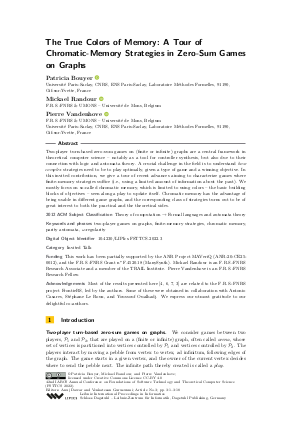LIPIcs.FSTTCS.2022.3.pdf
- Filesize: 0.74 MB
- 18 pages

 Creative Commons Attribution 4.0 International license
Creative Commons Attribution 4.0 International license




Feedback for Dagstuhl Publishing